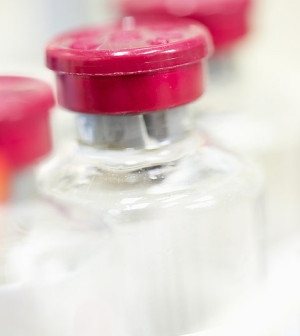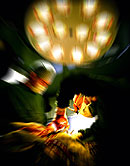- Could Your Grocery Store Meat Be Causing Recurring UTIs?
- Are You Making This Expensive Thermostat Error This Winter?
- Recognizing the Signs of Hypothyroidism
- 10 Strategies to Overcome Insomnia
- Could Artificial Sweeteners Be Aging the Brain Faster?
- Techniques for Soothing Your Nervous System
- Does the Water in Your House Smell Funny? Here’s Why
- Can a Daily Dose of Apple Cider Vinegar Actually Aid Weight Loss?
- 6 Health Beverages That Can Actually Spike Your Blood Sugar
- Treatment Options for Social Anxiety Disorder
Irregular Heart Rhythm Ups Stroke Risk Soon After Heart Surgery


People who are older than 65 who’ve had a stroke or heart valve surgery, or who have known blood vessel disease, have an increased risk of stroke after heart surgery, a new study finds.
Researchers looked at nearly 109,000 heart surgery patients in the Canadian province of Ontario and found that those factors could up the risk of stroke immediately after and for as long as two years following heart surgery.
Having a heart rhythm disorder called atrial fibrillation also increased the risk of stroke, but only immediately after heart surgery, according to the study in the July 21 issue of the Canadian Medical Association Journal.
The researchers also found that patients with a higher number on the CHADS2 score — a tool used by doctors to determine a patient’s risk of stroke — are at increased risk of stroke with or without atrial fibrillation.
“The rate of stroke or death in the absence of any atrial fibrillation was 5.8 percent among patients with a CHADS2 score of 0 or 1, as compared with 14.8 percent among those with a higher score,” wrote Dr. Richard Whitlock, from McMaster University, Hamilton, Ontario, and colleagues in a journal news release.
“In the group of patients who had a history of atrial fibrillation, the rate of stroke or death at 2 years was 9.3 percent among those with a CHADS2 score of 0 or 1, as compared with 19.9 percent among those with a higher score.”
The researchers noted that stroke is a significant complication after surgery, and that their study improves understanding of stroke risk in heart surgery patients.
Although the study found an association between these factors and the risk of stroke, it wasn’t designed to prove whether or not these factors were directly responsible for strokes after heart surgery.
More information
The U.S. National Heart, Lung, and Blood Institute has more about heart surgery.
Source: HealthDay
Copyright © 2026 HealthDay. All rights reserved.










